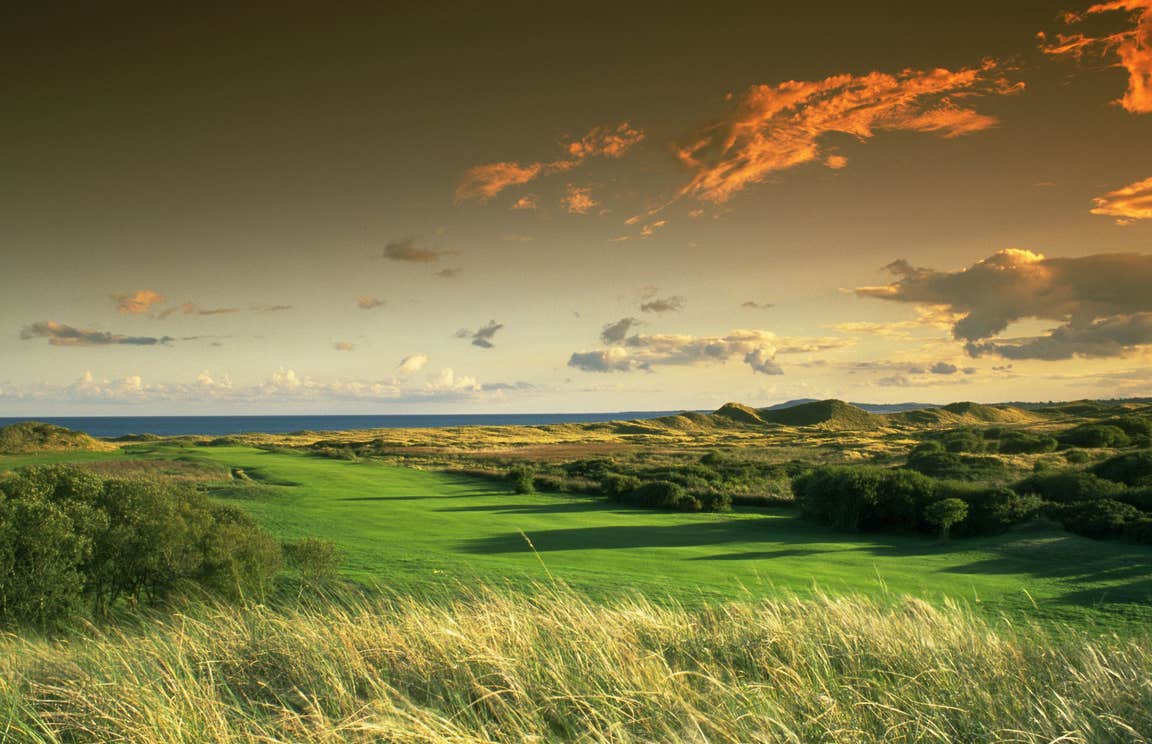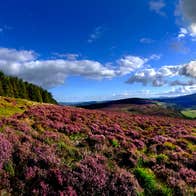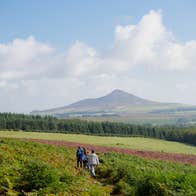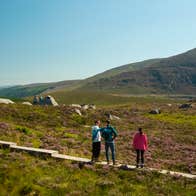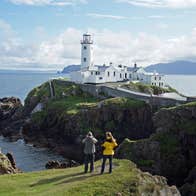One of Ireland’s very best seaside courses is The European Club, which straddles the headland at the southern end of Brittas Bay. The brainchild of renowned golf architect Pat Ruddy, this 20-hole links is a masterpiece of modern design, with a couple of holes that rank among the best you’ll find anywhere in the country. Like any links course its best defence is the weather, which can make it a tough challenge for the very best players. On calmer days, you can really appreciate the signature holes: the par-five 3rd, the par-four 7th and the 596-yard par-five 13th, which runs alongside the coast and features a green that is 127 yards deep. The two extra holes – 7a and 12a – were built to serve as relief when other holes were closed for maintenance, but are outstanding challenges in their own right.
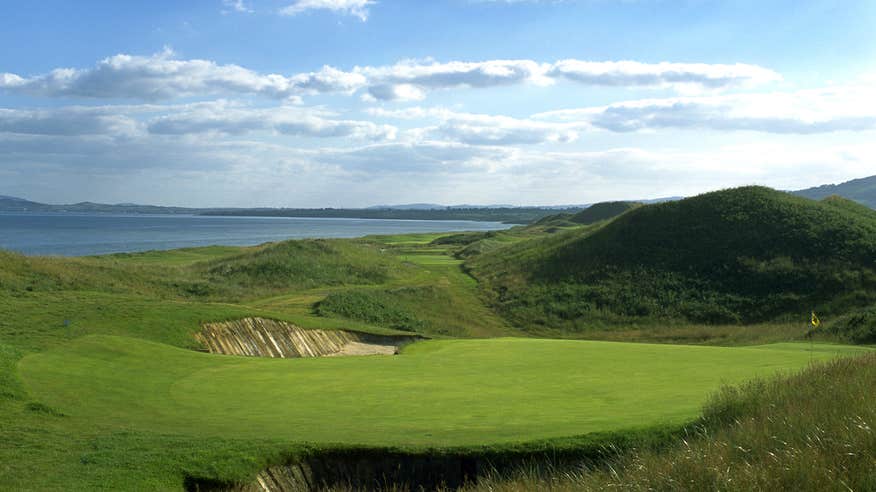
When it opened for play in 1995, Druids Glen Golf Resort was considered one of the best new courses in Europe. Three decades and multiple professional tournaments later, the ‘Augusta of Ireland’ is every bit as captivating, its lush landscape of ancient trees and babbling streams an idyllic setting for one of the finest golfing challenges in the country. The stretch of holes from the 12th to the 14th is known as “Ireland’s Amen Corner,” which is as much a clever bit of marketing as it is a reflection of the course’s outstanding pedigree. In 2003, the resort added a second course, Druids Heath, which has slightly more of a links feel to it, with lots of gorse bushes and plenty of strategically placed pot bunkers. Whichever you go for, you’re in golfing heaven.
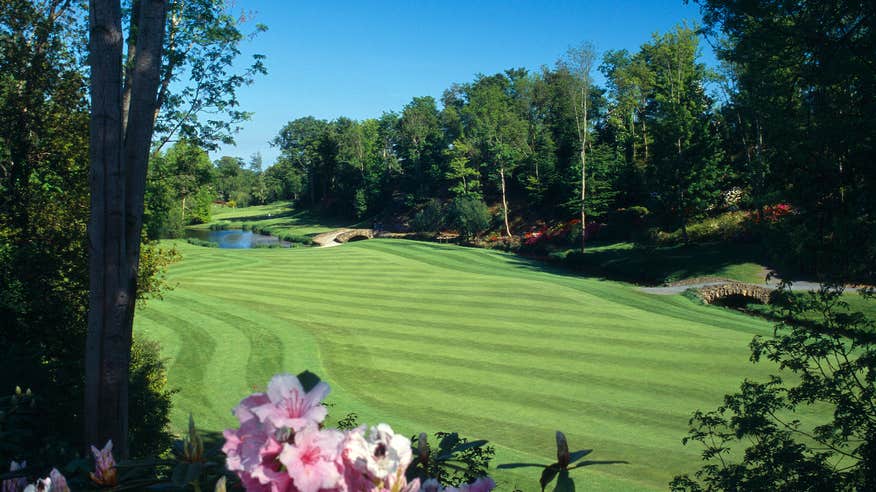
At Powerscourt Golf Club, built on a 12th-century Anglo-Norman estate, you have the choice of two courses: East and West. The older East course opened in 1996 and features 18 holes that wend their way up and down the estate’s hilly landscape. West, which opened for play in 2003, was designed by the same folks who worked on the much-lauded Bandon Dunes in Oregon and has wide fairways and large greens surrounded by trees. There’s no real agreement on which is the better course as both provide a strong challenge to golfers of all levels, but West offers the best scenery.
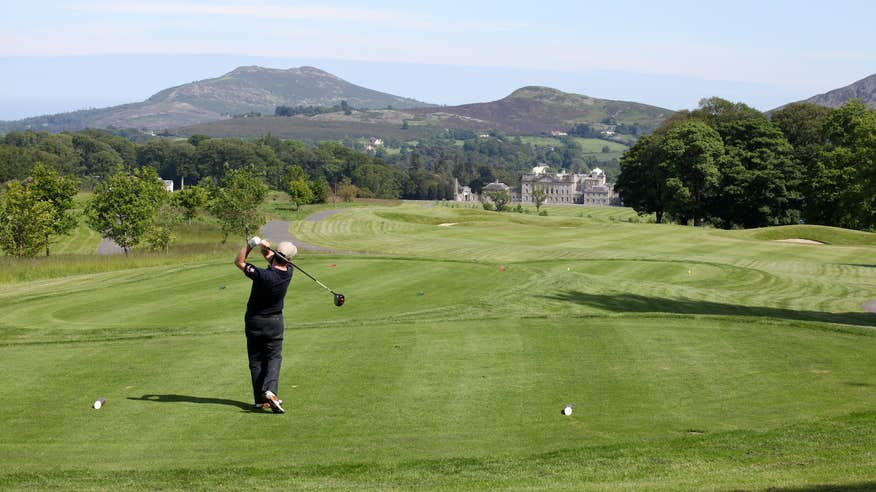
Routed over undulating terrain surrounding an elegant 31-bedroom country house hotel, Rathsallagh Golf & Country Club is one of the county’s loveliest courses. The fairways are flanked by mature trees, strategically placed streams and ponds bring water into play throughout. The beautifully maintained greens are designed to USGA specification – which means they can play pretty fast. Although the course is pretty generous to the high handicapper, accuracy is a must: the signature 8th, for instance, a 482-yard par-four that doglegs to the right, requires a blind tee shot that flirts with water all the way down the right, while the green is protected on all sides by a pond, a stream and a huge bunker.
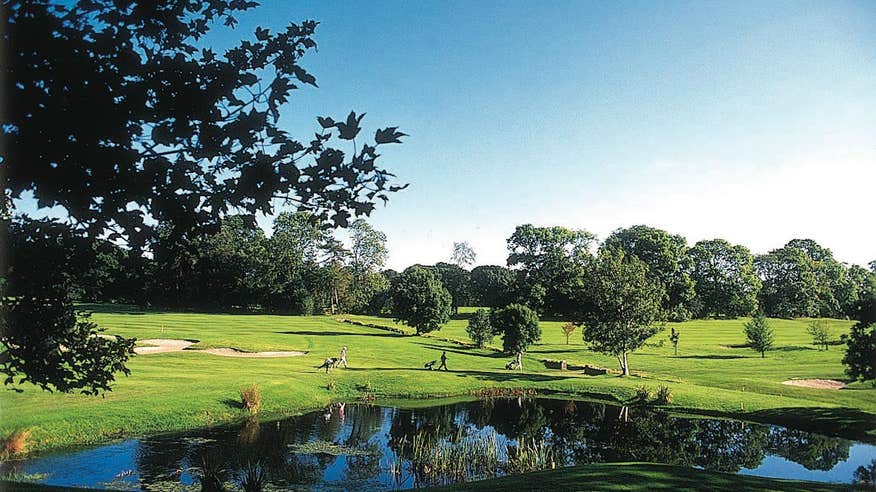
On the shores of Blessington Lakes, Tulfarris Golf Club is an 18-hole course that works its way around the lakes’ three peninsulas – with no two holes the same. Played off the forward tees, the course is a benevolent 5705 yards, but off the back sticks it’s a proper challenge: every one of the par threes plays over 170 yards while the 608-yard par-five 7th plays over a lake onto a dogleg fairway. Despite being surrounded by lakes, water isn’t in play on a lot of the holes which will come as a relief to the wayward hitter. Great views throughout and a fine golfing challenge make this one of the better choices in Wicklow.
One of Ireland’s oldest clubs, Woodenbridge Golf Club is set in a wooded vale where the Avoca and the Aughrim rivers meet – the same spot that inspired Thomas Moore’s famous song, ‘The Meeting of the Waters.’ For the first century of its existence it was a nine-hole course but the addition of a second nine in the early 1990s transformed this local club into one of the finest parkland courses in the east. The signature 18th is a daunting par-five that needs a carry of 160 yards over the River Avoca, which skirts the right-hand side of the fairway past a network of strategically placed bunkers. A par here counts as a job very well done.
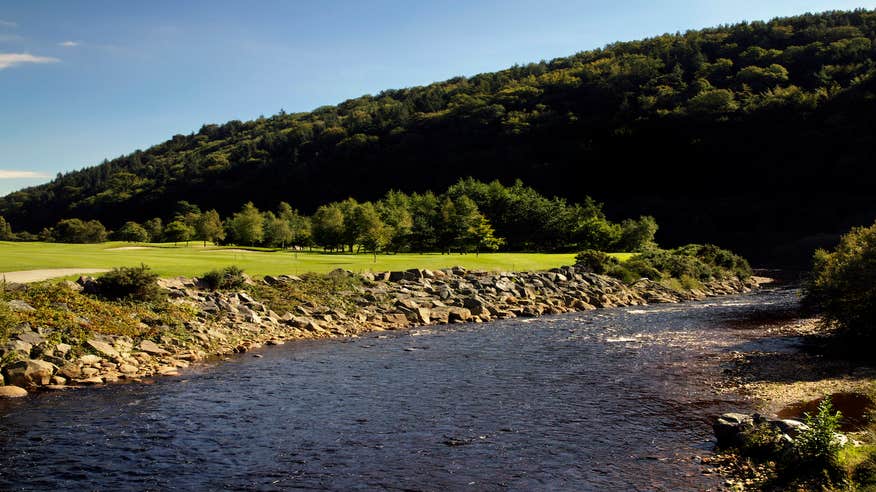
Arklow Golf Course is a classic old-school links established in 1927. It’s not as renowned as other links along the east coast, which means it flies nicely under the radar. The front nine is the strongest of the two sides, with most of the holes more or less as they were imagined by designers Fred G Hawtree and John H Taylor, the latter being one of the greatest English golfers of all time. The encroaching shoreline led to a major restoration in the 1970s, with the result that some of the inward holes have more of a parkland feel, although the par-five 16th (‘The Bow’) is an absolute classic with the green tucked into a corner at the top of the pot-bunkered fairway.
The 18-hole Wicklow Golf Club is a scenic parkland course laid out on cliffs overlooking the Irish Sea. Although the club itself is over 100 years old, it was only a nine-hole course until 2002, when a second nine opened for play. Although not especially long (you won’t need a driver on many holes) it’s still a challenging test of golf, largely because of the tight fairways that demand accuracy off the tee. Some of the holes skirt the cliffside: the par-four 6th has a 175-yard carry to the fairway and is called ‘Pebble Beach’ because it’s not too unlike the 8th at the famous course on California’s Monterey Peninsula.
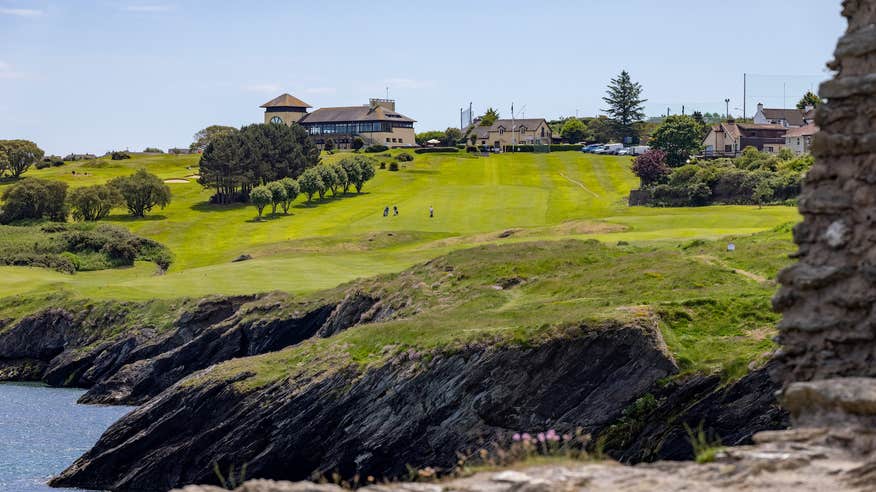
Low key and rarely included in any lists of top parkland courses in Ireland, Coollattin Golf Club is a welcome surprise. Set in the grounds of an old manor house, the course is a classic parkland, with mature trees lining the relatively tight fairways that demand accuracy off the tee. With reasonable green fees even in the summer months, Coollatin is a great option for the golfer looking for a challenging day out in a historic parkland surrounded by great scenery.
If you’re happy playing uphill for the first seven holes, then Blainroe Golf Club will reward you with one of the most spectacular back nines along the eastern seaboard. The course is laid out along a clifftop about 5km south of Wicklow town, with fabulous scenery pretty much throughout. The signature hole is the shortish par-four 14th, where the tee shot is played over the edge of a 75-foot cliff: the tendency is to pull a little left to avoid the drop but then you have to deal with a wooded area all down the left-hand side. The friendly, easy-going staff just add to the enjoyment of a good day out.
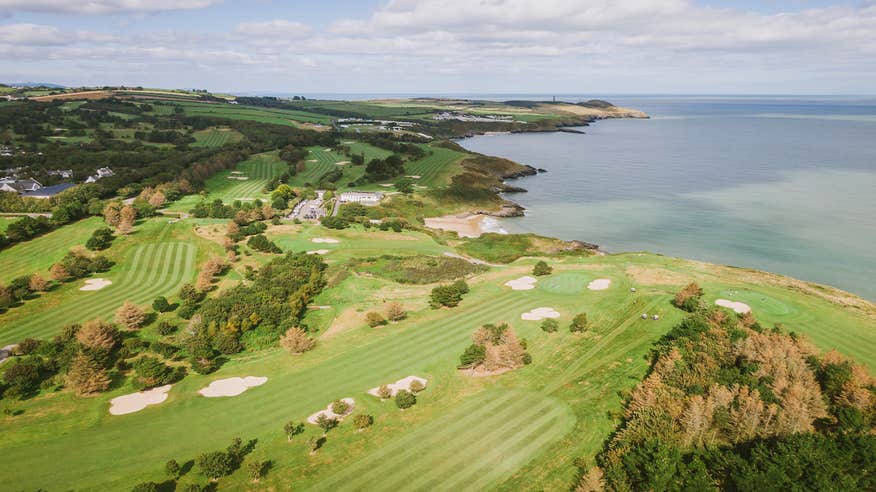
Other Wicklow courses
If you’re looking for more options beyond those listed above, there’s a few other courses worth checking out. Just south of Dublin, Bray is surrounded by some excellent golf courses, including Woodbrook Golf Club, Old Conna Golf Club and Bray Golf Club.
A few kilometers south is Delgany Golf Club, which was created by legendary golfer and designer Harry Vardon and was the home club of four Irish Ryder Cup stalwarts between the 1950s and 1980s. Despite being named after a south Dublin suburb, Dun Laoghaire Golf Club is actually on the edge of Enniskerry and features 27 holes of championship-level golf. And finally, if you’re looking just to play some par-three golf, there’s always Glen Mill, just north of Wicklow town.
Fancy another round? Pack up your clubs, hit the road and explore more of Ireland's best golf courses.
